Publications
Articles, publications, books, tools and multimedia features from the U.S. Institute of Peace provide the latest news, analysis, research findings, practitioner guides and reports, all related to the conflict zones and issues that are at the center of the Institute’s work to prevent and reduce violent conflict.
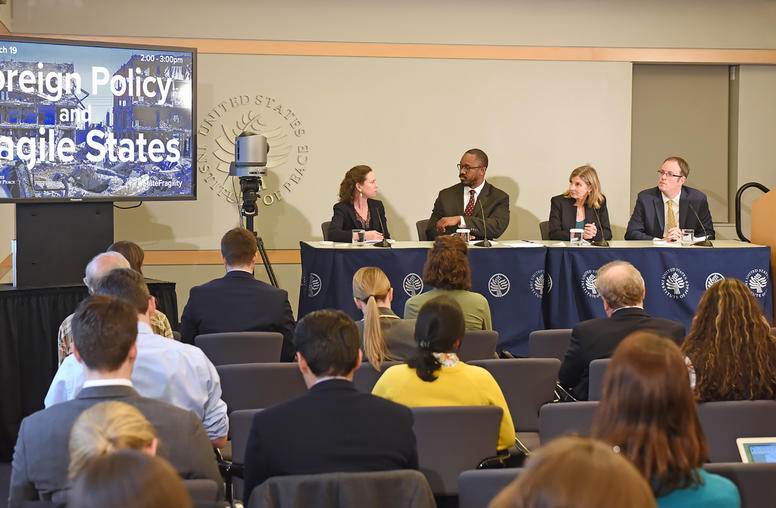
U.S. Policy on Fragile States: An On-Air Discussion
In the first of a series of town halls convened by America Abroad and the U.S. Intstitute of Peace, WAMU 1A’s host, Joshua Johnson, kicked off the show with a straightforward question: What, exactly, is a fragile state, he asked USIP President Nancy Lindborg.
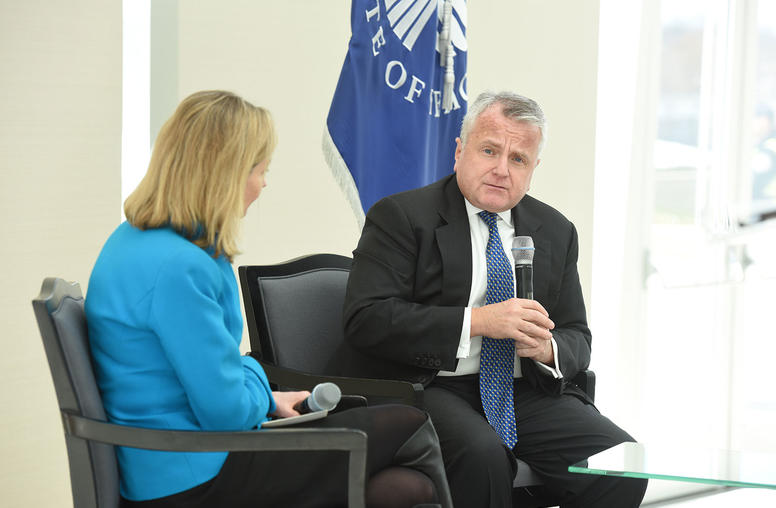
Deputy Secretary of State Sullivan: U.S. to Lead on Humanitarian Issues
The United States remains committed to its role as a global leader on humanitarian issues and will continue seeking to avert crises that spawn the need for humanitarian aid, Deputy Secretary of State John Sullivan said.
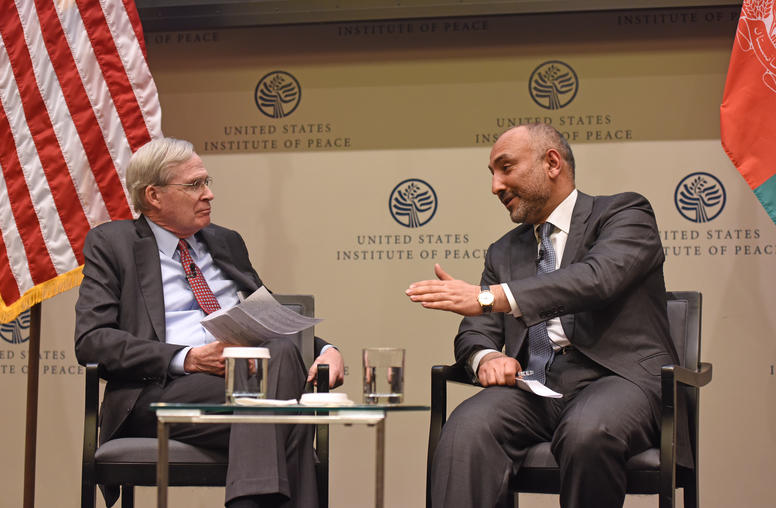
Making Peace Among Afghans: Kabul's View
Afghanistan’s government is focused on building consensus—both domestically and among states in the region—to support a peace process with the Taliban insurgency, according to the Afghan national security advisor, Hanif Atmar. The main challenges, he said, include continued support from Pakistan for the Taliban and an incremental recent Russian move toward immediate cooperation with the Taliban even without a peace process.
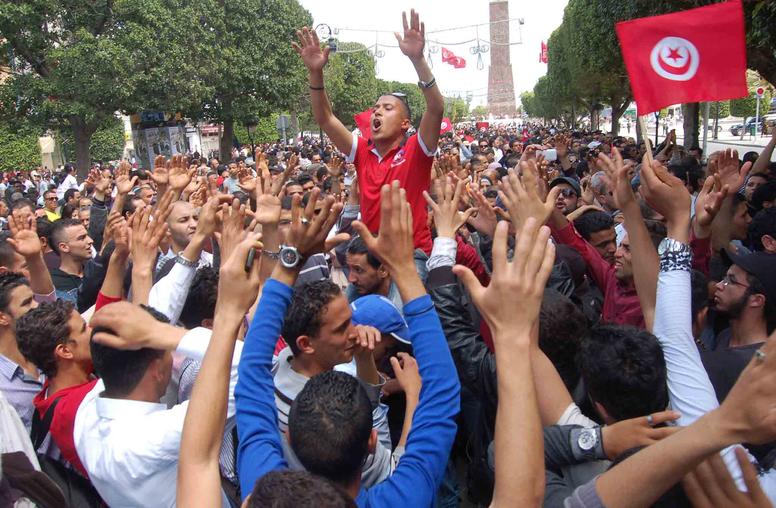
To Defeat Terrorism, Use 'People Power'
As governments and communities seek the right combination of methods to halt terrorism, one that we too often miss is nonviolent resistance. It’s not that we haven’t seen the power of protest movements that use mass marches, sit-ins, boycotts and other forceful but nonviolent tactics. To the contrary, people worldwide have been moved by watching such movements sweep aside the walls of apartheid, the tanks of dictators or the impunity of kleptocracies...
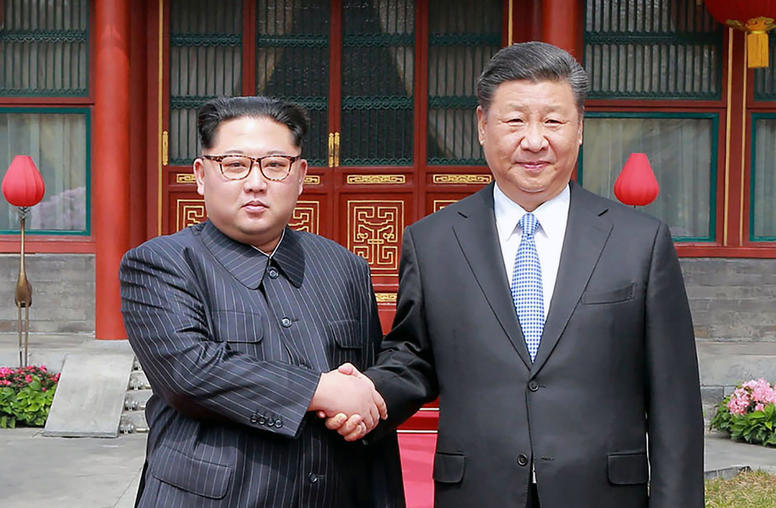
North Korea-China Summit: The ‘Strategic Choice’ by Both Sides
The surprise visit to Beijing by North Korea’s Kim Jong Un could offer both Kim and Chinese President Xi Jinping stronger hands for upcoming discussions with the United States, says USIP analyst Frank Aum. As news of the meeting broke, Aum, who previously advised the U.S. Defense Department on Korea issues, discussed its implications.
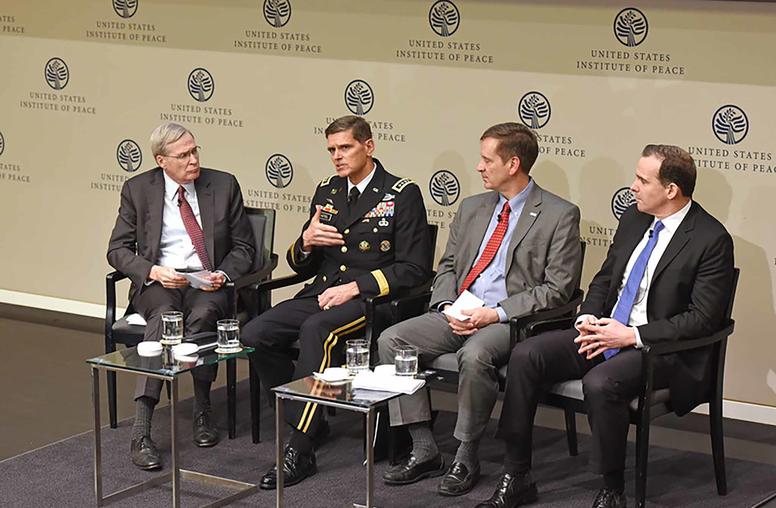
Tilting Iraq and Syria Toward Stability—and Away From ISIS
With last year’s military rollback of the ISIS-declared caliphate, U.S. security and Middle Eastern stability require some way to establish governance in Iraq and Syria that meets the needs of their peoples, according to U.S. administration and military leaders, Iraqi officials and regional experts speaking on April 3 at USIP. During a day-long examination of strategy to stabilize the region and prevent a revival of ISIS, U.S. special presidential envoy Brett McGurk said President Trump’s March 30 order to freeze spending on post-combat recovery efforts in Syria “is not hampering our work in the field.”
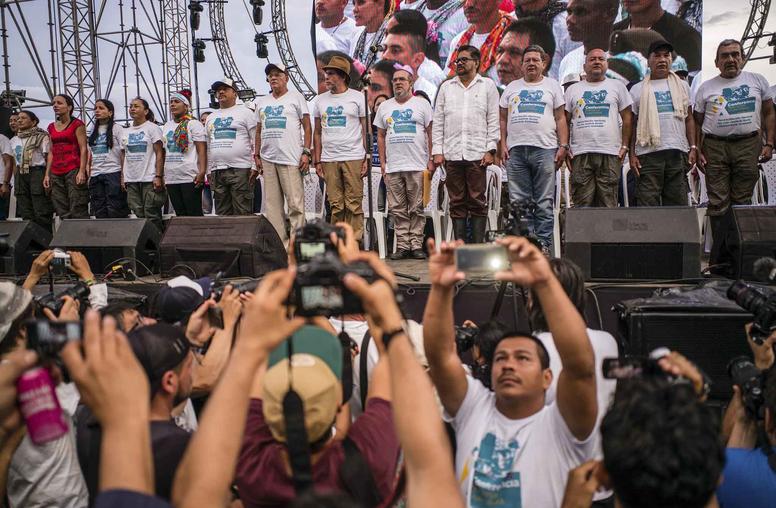
Will Colombia's 2018 Elections Imperil Peace?
The April 9 arrest and extradition request of former senior Revolutionary Armed Forces of Colombia (FARC) commander and peace negotiator Jesús Santrich highlights the complex challenges Colombia faces in the implementation of the historic November 2016 peace agreement with the FARC. Over a year and a half since the signing of the agreement, Colombia finds itself in one of the most critical moments in its efforts to definitively put to rest over five decades of armed conflict that has left more than 8.5 million victims in its wake. Frustrations surrounding the mixed results in the implementation of the peace agreement are exacerbated by the natural uncertainty over the upcoming May 27 presidential elections and its policy impact.
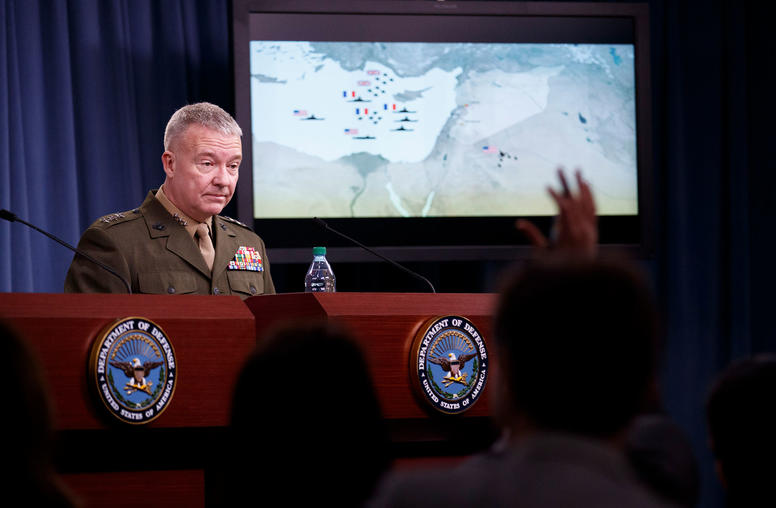
Q&A: After Airstrikes, What’s Next for the U.S. in Syria?
On Friday evening, the United States, together with Britain and France, launched a joint military operation in response to the Syrian regime’s April 7 chemical weapons attack on Douma. The Douma attack left more than 40 civilians dead and several hundred experiencing symptoms of exposure to toxic chemicals. The coordinated airstrikes hit three targets associated with Syria’s chemical weapons infrastructure: a scientific research center, a chemical weapons production facility, and a chemical weapons storage area. Around this time last year in April 2017, the Trump administration launched a unilateral cruise missile strike on the Shayrat airfield following a sarin attack by the Syrian regime on the town of Khan Shaykhoun, which killed more than 90 civilians. U.S. Institute of Peace Senior Advisor for Syria Mona Yacoubian provides some insight into the airstrikes and the challenges that lie ahead.
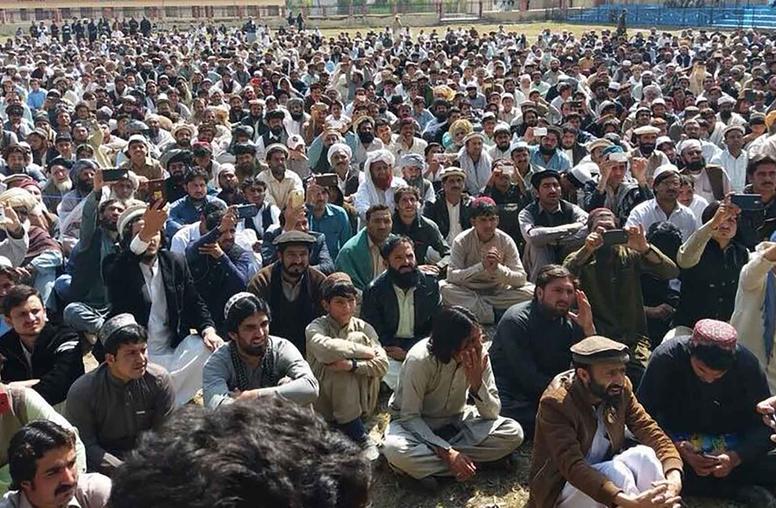
Could Pakistan’s Protests Undercut Taliban and Extremism?
Tens of thousands of ethnic Pashtuns have held mass protests in Pakistan in the past three months, demanding justice and better governance for their communities. The largely youth-led protests forged an organization, the Pashtun Tahafuz Movement (“tahafuz” means “protection”), that has broadened its goals to include democracy and decentralization of power in Pakistan. The movement reflects demands for change among the roughly 30 million Pashtuns who form about 15 percent of Pakistan’s population, the country’s second-largest ethnic community.
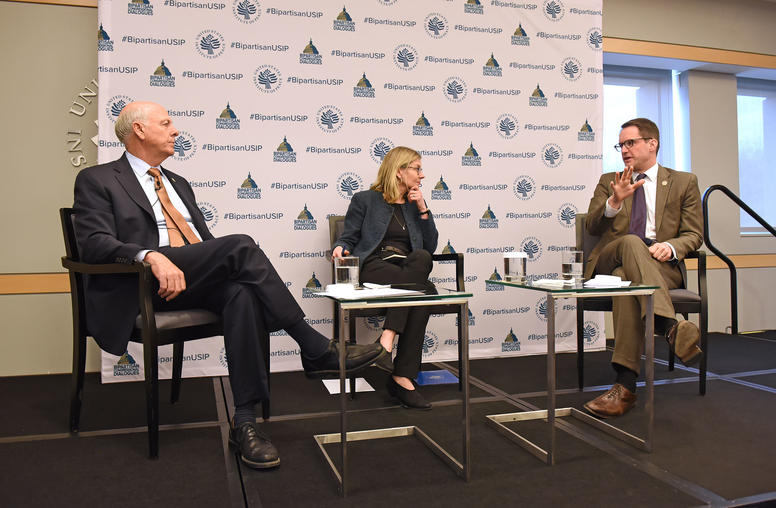
Evolving Cybersecurity Threats Require Bipartisan Approach
We live in an age of immense technological innovation and disruption. While these technologies make our lives easier, criminal groups and terrorist networks have the tools to exploit them, as policymakers struggle to keep up with rapid pace of change. Terrorist groups like the Islamic State and rogue regimes like North Korea employ these technologies to illicitly finance their operations, often using cryptocurrencies in order to evade detection. Despite the partisan rancor in Washington, Republican and Democrat members of Congress are coming together to counter illicit financing and wrestle with these emerging policy challenges.